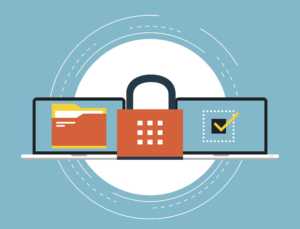Most people are aware of the importance of practicing good personal hygiene, but few realize that there is such a thing as good cyber hygiene. Just like your body needs to be clean and free of germs, your computer and other devices need to be kept clean and free of malware. Here are some tips to help you practice good cyber hygiene.

Protect Data
One way to prevent sensitive data from falling into the wrong hands is to encrypt it. Encryption is a process of transforming readable data into an unreadable format. This makes it difficult for unauthorized individuals to access the information. There are various encryption algorithms that can be used to encrypt data, and the level of security provided by each algorithm varies.
Another way to prevent sensitive data from falling into the wrong hands is to use access control measures. Access control measures restrict access to data based on an individual’s identity and permissions. For example, you can allow only certain individuals to access certain files or folders. You can also set up different levels of access, so that some individuals have read-only access while others have read-write access.
Yet another way to prevent sensitive data from falling into the wrong hands is to physically secure it. This means keeping it in a safe place where only authorized individuals have access to it. For example, you can keep physical copies of important documents in a locked filing cabinet or safe. Or you can store electronic copies of data on a secure server that can only be accessed by authorized individuals.
Update Browsers
Your web browser is your window to the internet, so it’s important to keep it up to date for security and stability. The same goes for any extensions or add-ons you have installed. These can also be exploited by malicious actors, so it’s important to keep them updated as well.
If you’re not sure how to update your web browser or extensions, you can usually find instructions by searching the internet or visiting the support site for your browser or extension. Once you’ve updated everything, be sure to restart your browser to ensure that the updates take effect.
If you’re using an outdated or unpatched browser or extension, you could be putting yourself at risk of being hacked. So make sure to keep everything up to date!
Clean Your Hard Drive
A clean hard drive is essential for a healthy computer. Just like your kitchen, if you don’t clean up the mess on your hard drive, eventually it will become cluttered and unusable. A clean hard drive will help your computer run faster and more efficiently. Here are some tips to help you keep your hard drive clean.
Uninstall any programs you don’t use. Over time, most people end up installing a lot of programs that they never use. These programs take up valuable space on your hard drive and can slow down your computer. If you don’t use a program, uninstall it to free up space.
Delete any files you don’t need. We all have files that we never use or need. These files can take up valuable space on your hard drive. Go through your hard drive and delete any files that you don’t need.
Empty your recycle bin. The recycle bin is a place where deleted files are stored. They are not actually deleted until you empty the recycle bin. If you have a lot of files in your recycle bin, it can take up valuable space on your hard drive. Empty the recycle bin to free up space.
Secure Files
There are many reasons to backup files in the cloud. Perhaps you’re concerned about losing important data if your computer crashes. Maybe you want to be able to access your files from anywhere in the world. Or, maybe you simply want an extra layer of protection for your most important files.
Whatever your reason, backing up files in the cloud is a great way to keep them safe and secure. And, it’s easy to do!
There are many different ways to backup files in the cloud. One popular option is to use a service like Dropbox or Google Drive. These services allow you to upload your files to their servers, and then access them from any computer or mobile device.
Another option is to use a cloud backup service like Backblaze or Carbonite. These services will automatically back up your files on a schedule you choose. They also offer additional features, like the ability to restore lost files and encrypting your data for extra security.
Finally, you can always back up your files manually. This involves copying your files to an external hard drive or USB flash drive. You can then store this drive in a safe place, like a safe deposit box.
No matter which method you choose, backing up files in the cloud is a smart way to protect your data. So, don’t wait until it’s too late!
By following these tips, you can help to keep your computer and your personal information safe from hackers. Remember, good cyber hygiene is just as important as good personal hygiene! Stay tuned into Bayshore Interactive’s blog for more information.

